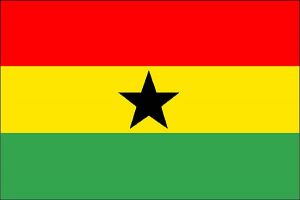Language/Ga/Grammar/Adjectives
Hi Ga learners! 😊
In this lesson, we will be focusing on adjectives in Ga. Adjectives are words that describe or modify a noun. They provide extra information about the noun in question. For example, in the phrase “beautiful flower”, the word “beautiful” is an adjective that describes the noun “flower”.
Adjectives in Ga come before the noun they modify, just like in English. For instance, "kotu fio" means "short man," where "kotu" is the adjective and "fio" is the noun.
Consider exploring these related pages after completing this lesson: Pronouns, Questions & How to Use Have.
Types of Adjectives[edit | edit source]
In Ga, there are two types of adjectives:
Permanent Adjectives[edit | edit source]
These adjectives are inherent qualities that do not change. They remain the same for their entire existence. Examples of permanent adjectives include:
| Ga | Pronunciation | English |
|---|---|---|
| eyi | /eji/ | beautiful |
| ŋweŋ | /ŋweŋ/ | tall |
| kotu | /kotu/ | short |
| yaa | /ja:/ | long |
Temporary Adjectives[edit | edit source]
Temporary adjectives describe things that may change depending on certain situations. For instance, the adjective “cold” is a temporary adjective because the temperature may fluctuate. These adjectives can change with time, location, or individual perception. Examples of temporary adjectives include:
| Ga | Pronunciation | English |
|---|---|---|
| kelee | /kele:/ | cold |
| boloo | /bolo:/ | hot |
| mosi | /mosi/ | soft |
| tsuru | /tsuru/ | hard |
Comparison of Adjectives[edit | edit source]
Adjectives can also be compared in Ga. Here's how:
Comparative Adjectives[edit | edit source]
When adjectives are compared, we want to know which of two nouns has more of the quality expressed by the adjective. In Ga, to compare two nouns, you add the suffix -le to the comparative adjective. Examples include:
- Person 1: Okyeame no yɛ deɛ anɔpa, hwan na yie? (The chief is up, how was your night?)
- Person 2: Yɛ de kasa ɔhe? Mepɛ sɛ me nfa baa no buulu, na ɔno nso adeɛ yɛ nɔŋɔŋ? (Are we talking about the weather? I hope it doesn't get too hot, or is it still cold?)
- Person 1: Aŋtsɛ, ɛyɛ seɛyɛ! Adaa hewalele waŋmɔ? (Not at all, it's cool! Is it going to get colder?)
- Person 2: Ayaa kɛkɛ. (No, it won't get colder.)
- Person 1: ɔdenkyem no kaa yɛn, na ɛyɛ deɛ ɔhaw? (What did the bird say to us and what is it doing?)
- Person 2: Wontɔm no, ɛyɛ duale, ɔka Ɔsamafo no bo, afe daaŋ le. (It's chirping, it's singing, and it's calling for the chief. It's a beautiful morning.)
Superlative Adjectives[edit | edit source]
When we want to indicate the highest degree of an adjective, we use the superlative form. In Ga, the superlative form is created by adding the suffix -mi to the comparative adjective. Examples include:
| Ga | Pronunciation | English |
|---|---|---|
| eyilemi | /eji:lɛmi/ | most beautiful |
| ŋweŋlemi | /ŋweŋlɛmi/ | tallest |
| kotulemi | /kotulɛmi/ | shortest |
| yaa mi | /ja:mi/ | longest |
Adjective Agreement[edit | edit source]
Adjectives in Ga agree with the noun they modify in both gender and number. For instance, the word for “beautiful” in Ga is “eyi.” When you want to describe a “beautiful woman” or “beautiful women”, you will say:
- woman: "ŋohunun eyi" (beautiful woman)
- women: "ŋohunun eyi mie" (beautiful women)
Notice how the adjective "eyi" agrees in both gender and number with the noun "ŋohunun."
Example Dialogue[edit | edit source]
- Person 1: Aba, ɔhunun kotu fio yɛ? (Aba, is that a short man?)
- Person 2: Aane, ɔhunun na eŋŋye ŋweŋ. (No, that woman is actually tall.)
Practice Exercise[edit | edit source]
Below are ten adjectives in Ga. Using each of these adjectives, try creating five different sentences that accurately describes different nouns.
1. ŋatsu 2. mɔkoŋ(ŋ) 3. niili 4. fetɛ 5. yɛnɛ 6. mliami 7.ŋmele 8. jeele 9. nɔŋmi 10. tsurolemi
➡ If you have any questions, please ask them in the comments section below.
➡ Feel free to edit this wiki page if you think it can be improved. 😎

